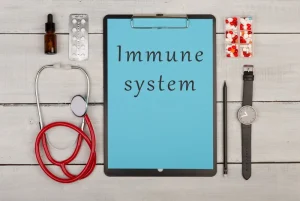JUN
23

This means that alcoholism is a complex condition characterized by a variety of symptoms. They affect an individual’s mental, physical, and amphetamine addiction treatment emotional health and well-being. On both a genetic and environmental level, family history can contribute to alcoholism. Research has shown that the two genes ADH1B and ALDH2, which control alcohol metabolism, are key factors in developing alcoholism along with several others. Whether at home, at work, or in any other environment that causes stress, some people will have a drink to unwind and relax.

Other Risk Factors of Alcoholism

Research by the NIAAA indicates that about 20% to 40% of individuals treated for anxiety disorders also struggle with AUD. Similarly, the co-occurrence of AUD with major depressive disorder ranges why do people become alcoholics from 27% to 40%, and among those with bipolar disorder, the prevalence of AUD can be as high as 42%. This highlights the significant overlap between AUD and other mental health conditions, emphasizing the need for integrated treatment approaches that address both substance use and underlying psychological issues. While self-medicating mental health issues may provide some relief in the short-term, it only worsens problems in the long-term. Regular self-medication can lead to alcohol addiction, worsening mental health disorders, and increased health problems.

What are the Causes of Alcohol Use Disorder (AUD)?
- Similarly, people with anxiety, panic disorders, bipolar disorder, and PTSD are all at a higher risk of developing a drinking problem.
- Moreover, within the same religious tradition, there are many adherents that may interpret and practice their faith’s teachings on alcohol in diverse ways.
- In the following passages, we show you the most common causes of alcoholism.
- We do everything in our power to help you succeed in breaking the cycle of addiction, and know that with the right kind of help, everyone is capable of healing.
- Other common reasons for alcohol addiction include environmental factors, such as growing up in a home or family where close relatives have alcohol use disorder.
- Alcoholism is a complex disease involving physical and psychological changes that occur with consistent alcohol use.
Family therapy steers family dynamics, bolsters communication, and guides the individual and their loved ones in the recovery process. In the Harvard Counseling for Alcoholics’ Marriages Project, over 50% of husbands with alcohol use disorders who participated in couples counseling remained alcohol-free during the first year after treatment. To overcome alcohol addiction requires a multifaceted approach involving determination, professional support, and lifestyle adjustments.
Alcoholism
Addressing underlying stressors and seeking healthier coping strategies are important steps in preventing alcoholism related to stress and trauma. Yes, stress and trauma can be significant contributing factors to the https://ecosoberhouse.com/ development of alcoholism. Many people turn to alcohol as a coping mechanism to deal with stress, anxiety, or unresolved trauma. Genetics plays a significant role in the risk of developing alcohol addiction, though it is not the sole factor. Some people are predisposed to alcoholism for various reasons, while others aren’t.

And even if we realize we’re sliding into the alcohol trap, we might find ourselves without access to much-needed mental health resources that could offer support. Even the neighborhood around the home seems to influenceconsumption patterns, and people brought up in or who reside in neighborhoodsof heavy abuse are also more likely to use and abuse alcohol themselves. In addition to genetic influences, the Mayo Clinic considersthat there are three additional primary influences to alcohol abuse oralcoholism.
Find Support for Alcoholism at The Recovery Village Columbus
The effectiveness of these programs varies depending upon the severity of the problem, the social and psychological factors involved and the individual’s commitment to the process. A 2001 study found that 80 percent of people who had gone through a 12-step program such as AA remained abstinent six months afterward, compared to about 40 percent of people who didn’t go through a program. Studies have also found that combining medication with therapy works better than either treatment alone. Medication addresses the chemical imbalances that cause alcohol addiction, while therapy helps people cope with abstinence. Alcohol affects brain chemistry by altering levels of neurotransmitters. Neurotransmitters are chemical messengers that transmit the signals throughout the body that control thought processes, behavior and emotion.
- While drinking early on can increase the likelihood of alcohol abuse, alcoholism can affect anyone at any age.
- While alcohol serves temporary relief from these mental health conditions, it ultimately worsens them in the long run.
- While relapse is possible, it’s important for individuals in recovery from alcohol addiction to continue to seek support.
- Yet, these temporary effects will fade, and the harmful consequences of alcohol addiction take hold.
Due to the physiological influence of alcohol in the brain, people who regularly drink alcohol will disrupt their normal brain functioning, resulting in a higher risk of addiction. The National Institute on Alcohol Abuse and Alcoholism warns that binge drinking and heavy alcohol use are among the causes of alcoholism. Slips can be fueled by withdrawal symptoms, mental health challenges, and drug-related cues, such as spending time with old drinking partners or visiting old drinking locations. These behavioral factors do not operate in isolation but interact with genetic, environmental, and psychological factors to influence the causes of alcohol use disorder. This complex interplay means that the risk of developing AUD is multifaceted and requires a comprehensive approach to understanding and treatment. Individuals who experience traumatic life events are much more likely to develop Post-Traumatic Stress Disorder (PTSD).

Though there is no singular cause behind alcohol addiction, many different factors can contribute to its development. The disease of addiction targets people regardless of their sex, gender, race, religion or socioeconomic status, but learning about the condition can help shed light on the causes of alcoholism and possible solutions. Chronic alcohol abuse can weaken the immune system, disrupt hormonal balance, and damage vital organs, resulting in long-term health complications and reduced life expectancy. Seeking treatment and adopting healthier lifestyle choices are essential for mitigating these risks. In fact, stress is a completely normal reaction that helps people cope with overwhelming events. However, if stress becomes chronic and someone doesn’t know how to cope with it, he or she may turn to alcohol for relief.





